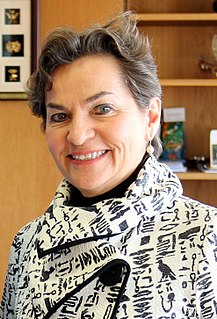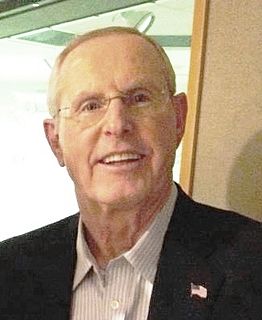A Quote by Michael Shellenberger
Renewables require the use of vastly more land, longer and less-utilized transmission lines, and large amounts of storage whether from lithium batteries, new dams, compressed air caverns.
Related Quotes
One of the biggest issues with renewables right now is the fact that if the wind isn't blowing, if the sun isn't shining, we don't have energy. Many people are working on storage technology so when the wind isn't blowing, we can use the energy stored in our giant batteries, essentially. But what happens if we don't have enough stored energy?
The majority of the people of the world today are unsane, not insane, unsane meaning having been exposed to methods of evaluation that have long rendered obsolete, our language in the future will change to a saner language where we have no argument in it, 'can there be such a language?' there is, when engineers talk to each other, it's not subject to interpretation, they use math, they use descriptive systems, if I interpreted what another engineer said in the way I think he meant it: you couldn't build bridges, dams, power transmission lines. The language has to have meaning
Cloud storage in data centers will utilize the latest developments in physical storage virtualization, deduplication and other methods to make the most effective use of physical storage assets. Software defined storage could allow a further level of abstraction and cost effectiveness. The vast bulk of content stored "in the cloud" will reside on large SATA interface HDDs with some on magnetic (mostly LTO) tape (particularly for "archives.")
Will biofuel usage require land? Absolutely, but we think the ability to use winter cover crops, degraded land, as well as using sources such as organic waste, sewage, and forest waste means that actual land usage will be limited. Just these sources can replace most of our imported oil by 2030 without touching new land.
I noticed that there are no B batteries. I think that's to avoid confusion, cause if there were you wouldn't know if someone was stuttering. 'Yes, hello I'd like some b-batteries.' 'What kind?' 'B-batteries.' 'What kind?' 'B-batteries!' and D-batteries that's hard for foreigners. 'Yes, I would like de batteries.'
Just between you and me, shouldn’t the World Bank be encouraging MORE migration of the dirty industries to the LDCs [Less Developed Countries]?... I think the economic logic behind dumping a load of toxic waste in the lowest wage country is impeccable and we should face up to that... I’ve always though that under-populated countries in Africa are vastly UNDER-polluted, their air quality is probably vastly inefficiently low compared to Los Angeles or Mexico City.
Developed and benefited from the unsustainable patterns of production and consumption which have produced our present dilemma. It is clear that current lifestyles and consumption patterns of the affluent middle class-involving high meat intake, consumption of large amounts of frozen and convenience foods, use of fossil fuels, appliances, home and work-place air-conditioning, and suburban housing-are not sustainable. A shift is necessary toward lifestyles less geared to environmentally damaging consumption patterns.

































